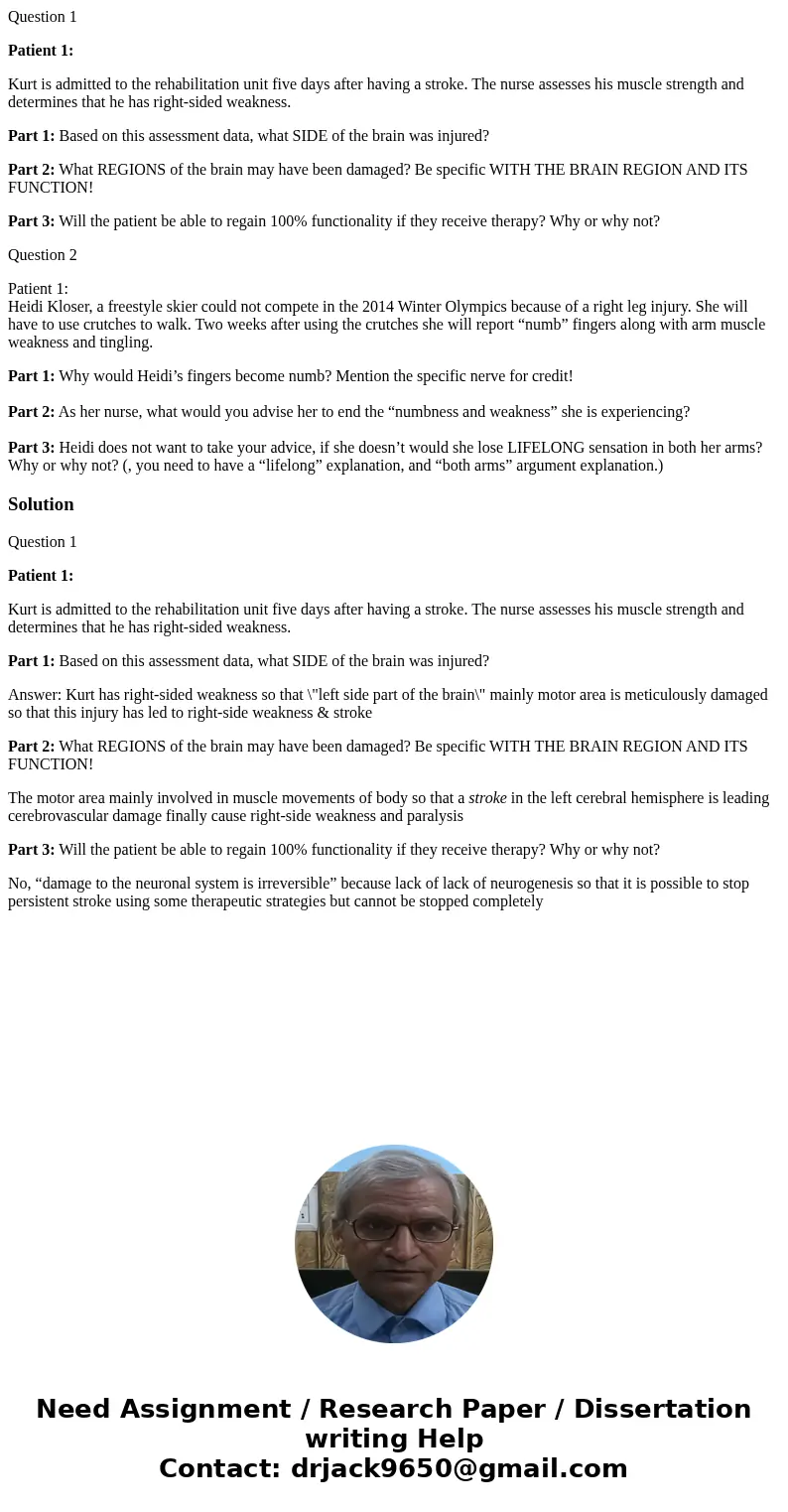Question 1 Patient 1 Kurt is admitted to the rehabilitation
Question 1
Patient 1:
Kurt is admitted to the rehabilitation unit five days after having a stroke. The nurse assesses his muscle strength and determines that he has right-sided weakness.
Part 1: Based on this assessment data, what SIDE of the brain was injured?
Part 2: What REGIONS of the brain may have been damaged? Be specific WITH THE BRAIN REGION AND ITS FUNCTION!
Part 3: Will the patient be able to regain 100% functionality if they receive therapy? Why or why not?
Question 2
Patient 1:
Heidi Kloser, a freestyle skier could not compete in the 2014 Winter Olympics because of a right leg injury. She will have to use crutches to walk. Two weeks after using the crutches she will report “numb” fingers along with arm muscle weakness and tingling.
Part 1: Why would Heidi’s fingers become numb? Mention the specific nerve for credit!
Part 2: As her nurse, what would you advise her to end the “numbness and weakness” she is experiencing?
Part 3: Heidi does not want to take your advice, if she doesn’t would she lose LIFELONG sensation in both her arms? Why or why not? (, you need to have a “lifelong” explanation, and “both arms” argument explanation.)
Solution
Question 1
Patient 1:
Kurt is admitted to the rehabilitation unit five days after having a stroke. The nurse assesses his muscle strength and determines that he has right-sided weakness.
Part 1: Based on this assessment data, what SIDE of the brain was injured?
Answer: Kurt has right-sided weakness so that \"left side part of the brain\" mainly motor area is meticulously damaged so that this injury has led to right-side weakness & stroke
Part 2: What REGIONS of the brain may have been damaged? Be specific WITH THE BRAIN REGION AND ITS FUNCTION!
The motor area mainly involved in muscle movements of body so that a stroke in the left cerebral hemisphere is leading cerebrovascular damage finally cause right-side weakness and paralysis
Part 3: Will the patient be able to regain 100% functionality if they receive therapy? Why or why not?
No, “damage to the neuronal system is irreversible” because lack of lack of neurogenesis so that it is possible to stop persistent stroke using some therapeutic strategies but cannot be stopped completely

 Homework Sourse
Homework Sourse